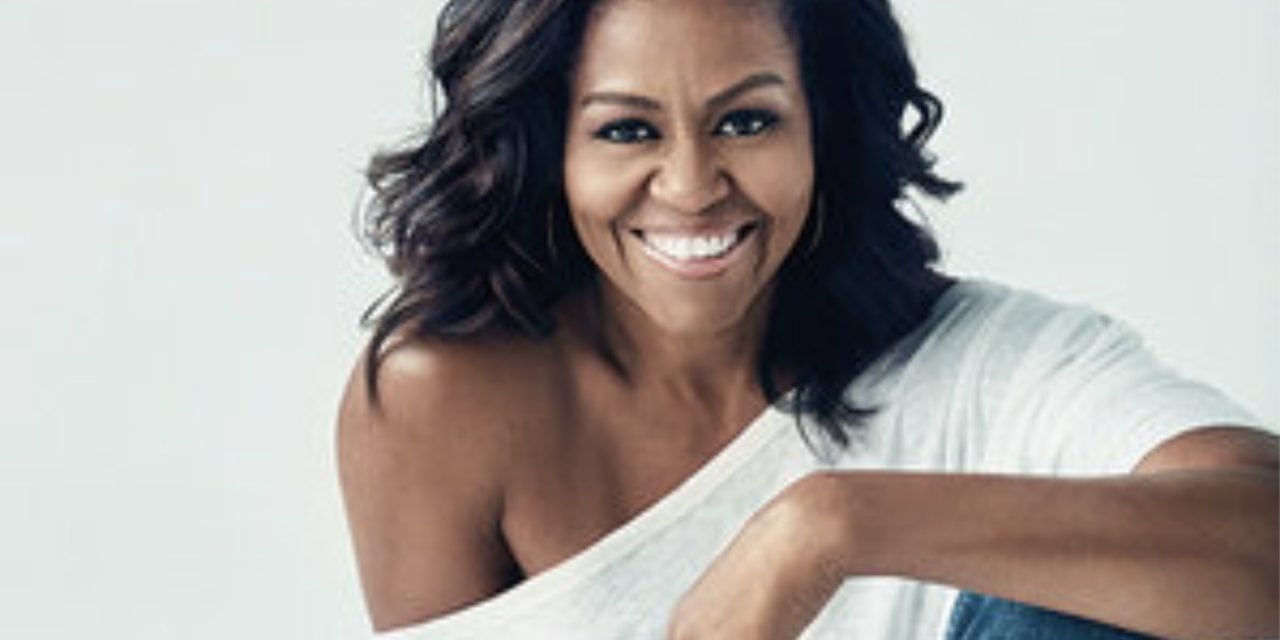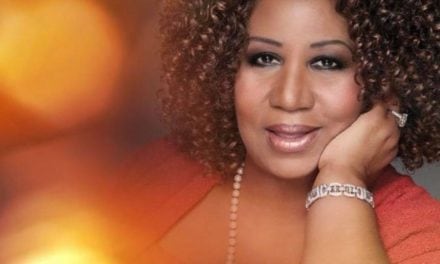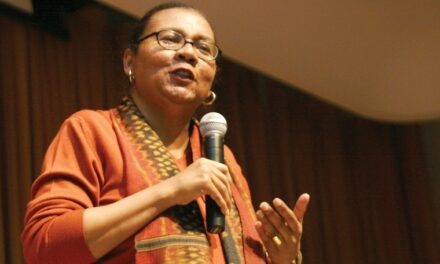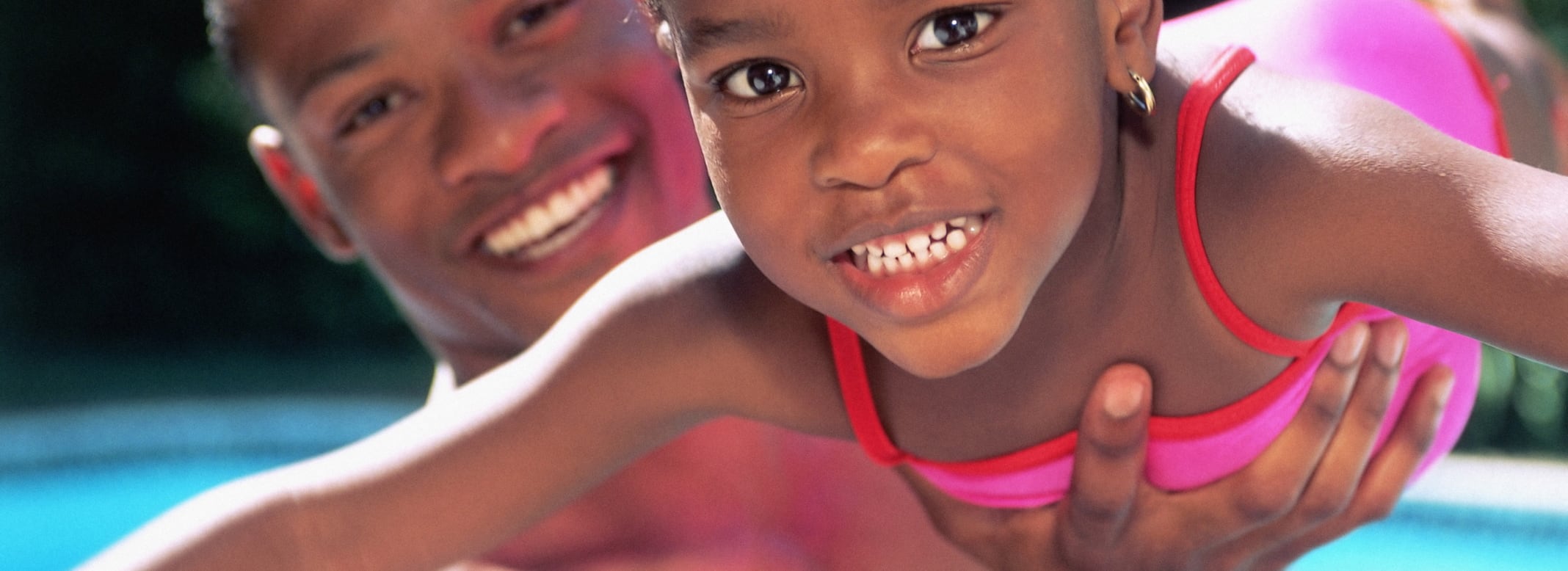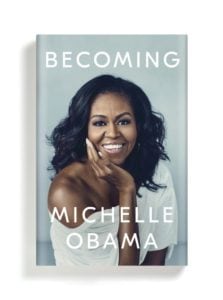 Becoming, Michelle Obama’s long-awaited, and already much-loved memoir is a rich, engaging, delightful read that would be wonderful to curl up with, even if she had not been First Lady of the United States.
Becoming, Michelle Obama’s long-awaited, and already much-loved memoir is a rich, engaging, delightful read that would be wonderful to curl up with, even if she had not been First Lady of the United States.
Reading, you feel as if you’re enjoying a long, unabashedly honest conversation with a favorite girlfriend about just living life. Michelle’s’ warmth, honesty, and frank style come through on every page, in her portraits of her family and friends — from aunties and great grandparents, cousins and college friends, and her daughters and the former president.
Obama’s inviting easy prose takes us back to Euclid Avenue on Chicago’s Southside in the ’60s and ’70s. Her coming-of-age tale will be familiar to millions of little African-American girls whose parents and grandparents were part of the great migration from the South.
Summers with the Robinsons included long drives down South to visit elders back “home.” Sunday dinners were filled with extended family, gathered around plates piled high with soul food, eaten to the rhythm of the jazz often playing in the background. (Coltrane and Fitzgerald were among her granddad’s favorites.) And of course, lives were guided and inspired by hard-working African American parents who held their heads high while battling the up-north racism (James Crow), that kept them under-employed, regardless of skills or education, and working twice as hard to take care of their families.
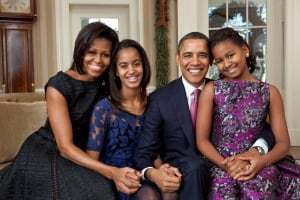
First Lady Michelle Obama with President Barack Obama and their daughters, Malia and Sasha, in the Oval Office. (Official White House Photo by Pete Souza)
Becoming quickly blossoms into story of young love, as Michelle meets Barack and they begin their journey on the path that brought them into all our lives. As she applies her smart, carefully curated approach to life to raising her family, loving her husband and serving as First Lady, Michelle also offers wonderful advice and shares inspiring stories about building a fulfilling, rewarding life, while beating challenges and remaining deeply respectful of self and those around you.
Here are a few words of wisdom, and other tidbits, from the book of Michelle:
Don’t forget to swerve.
A self-confessed “box checker,” who lived her life marching to “the resolute beat of effort/result, effort/result,” Michelle still makes a point of sharing a romantic moment with her first college boyfriend. He convinces her to take an afternoon off from her hard-working days at Princeton and take a somewhat aimless drive out to the Jersey countryside. The purpose? A giddy romp through a field of wildflowers, as opposed to a sunny day spent hitting the books. She writes that she still recalls that joyous, silly moment of “swerve” because it helped her disconnect from the “serious agenda” her days.
Look for people you can trust, and leave the haters behind.
One of Obama’s earliest lessons in protecting her aspirations came when a high-school counselor dismissed her stellar academic achievements, gazed at her with a patronizing smile and said, “I’m not sure that you are Princeton material,” when she expressed her interest in joining her brother at the Ivy League university.
“She was telling me to lower my sights,” Obama wrote, “which was the reverse of everything my parents had every taught me … but I wasn’t going to let one person’s opinion dislodge everything I knew about myself.” Of dealing with critics and naysayers, she advised: “I’ve been lucky enough to meet all sorts of extraordinary and accomplished people. … All of them have had doubters … but the most successful people I know have figured out how to live with it, lean on the people who believe in them, and push onward with their goals.”
Michelle dismissed the counselor and found a highly respected educator in the community to help with her application to Princeton.
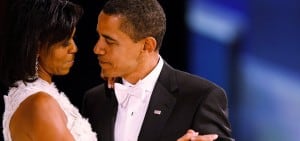
Michelle Obama wasn’t initially sure that her husband, Barack, would be sworn in as the 44th president of the United States. (Photo: Chip Somodevilla/Getty Images)
What was the first thing about Barack Obama that got Michelle’s attention?
His voice. While she dismissed the first photo of him as having “a whiff of geekiness,” she wrote, “I was pleasantly startled by the voice on the other end of the line—a rich, even sexy baritone.”
What was she thinking when Barack Obama declared his first run for President?
Michelle Obama hit the campaign trail, ultimately quitting her job, and supported her husband every inch of the way to the White House. “I said yes because I loved him and had faith in what he could do.” Early on, though, she confessed “I also felt certain he wouldn’t make it all the way. … Barack was a black man in America, after all. I didn’t really think he could win.”
You are in control of your happiness, at least some of the time.
The former First Lady has been completely honest about the marital struggles she and her husband endured when politics first began to take him away from their family. Almost anyone who has ever been married will recognize the frustrating dance they fell into—he worked late, she’d hold dinner until she it was cold and she was hot. He’d get home hours later than expected and, Michelle wrote, “I’d wait so long that Sasha and Malia’s eyes would start to droop and I’d carry them off to bed … or I’d wait alone, hungry and increasingly bitter.”
Not willing to let their deep love and her marriage unravel, she got him to agree to counseling. Once there, it was clear both husband and wife needed to do some work, as is almost always the case, but Michelle said: “I began to see that I had been stoking the most negative parts of myself, caught up in the notion that everything was unfair.”
She helped to turn things around when she realized, “I was more in charge of my happiness than I was allowing myself to be.” She stopped focusing on resentment, went back to the gym and established a new evening family schedule for her and the girls that went smoothly, whether dad made it home or not.
“I began to see that there were ways I could make myself happier that didn’t have anything to do with Barack quitting politics.”
Even Michelle had to work to get past the “angry black woman” stereotype.
By the time you reach the chapter of Becoming when Barack begins to campaign for president, you already feel like you know Michelle as a loving wife, mom, daughter and sister, and a great friend to many with a quick wit and a big, bright smile. That is why it is so jarring, but perhaps painfully familiar to so many black women, when she reports being brutally attacked in the press while on the road trying to support her husband.
Fox News famously described her as Barack’s “baby mama,” and her college thesis on African American student identity was attacked as “radical.” She wrote, “It was as if there was a cartoon version of me out there … some too-tall, too-forceful, ready-to-emasculate Godzilla of a political wife named Michelle Obama. I was female, black and strong, which to certain people … translated only to angry. … I am telling you. This stuff hurt.”
Yet as we now know, she shouldered that pain, carefully honed her speaking and campaigning skills, and tamed most of her critics as she became one of America’s most popular first ladies.
She never lost sight of our foremothers and the unique ways in which their struggles and triumphs helped pave her way to the White House.
“I carried history with me,” Michelle wrote, “I thought often of what I owed and to whom. … I’d never related to the story of John Quincy Adams, the way I did the story of Sojourner Truth, or been moved by Woodrow Wilson the way I was by Harriet Tubman. The struggles of Rosa Parks and Coretta Scott King were more familiar to me than those of Eleanor Roosevelt or Mamie Eisenhower. I carried their histories along with those of my mother and grandmothers.”
Even after the Obamas became President and First Lady of the United States, Michelle says, “I felt that I shouldn’t rest. … I was still earning my grace. I wanted to show up in the world in a way that honored who they were.”
And that is just one of the many reasons that no matter who occupies the White House, or how they attempt to erase the Obama family legacy, she will always be our First Lady, our Michelle.
I love this video 💜 pic.twitter.com/BbFuCLHrqJ
— Lyndsey 👩🏾💻✨ (@LyndseyCamille) December 17, 2018

